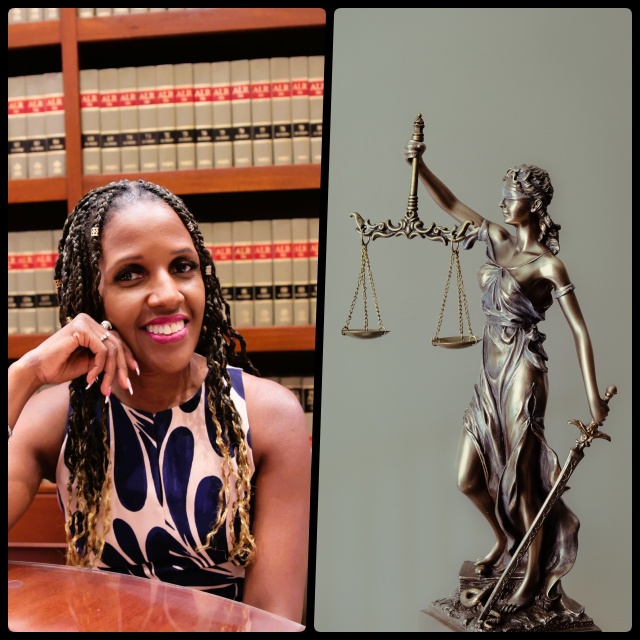By Imuetinyan Ugiagbe,
Special to the AFRO
On Oct. 1, 2022, the Child Interrogation Act (CIA) took effect in Maryland.
The Maryland General Assembly successfully enacted several changes during its 2022 legislative session. Among these changes was the initiation of the Juvenile Justice Reform Act, aimed at addressing the treatment of children within the criminal legal system. This act led to the implementation of various laws– one being the Child Interrogation Protection Act.
Natasha Dartigue, the first Black public defender of Maryland State who has been with the office for 27 years, told the AFRO that “one of the purposes of the law is to decrease false confessions made by children.”
“Children are three times more likely to falsely confess than adults. It is the hope that with this law, we are preserving the rights of children,” said Dartigue. “We are also lessening the number of cases where we have this situation of false confessions.”
According to the American Civil Liberties Union of Maryland (ACLU Maryland), the law “require[s] an attorney be consulted when a child is taken into custody.” The law “also ensures that parents/guardians will be notified if their child is taken into custody.” In addition, the law “establishes a rebuttable presumption that a statement made by a child during a custodial interrogation is inadmissible if a law enforcement officer willfully failed to comply” with the law’s requirements.
ACLU Maryland says the latter is a “key aspect” of the law because “it has been demonstrated that children waive their rights at a rate of shockingly 90 percent, leaving them vulnerable to rights violations.”
Dartigue shares that Maryland ranks among the states with the most concerning history of child rights violations, particularly affecting Black and Brown communities.
“When we talk about human rights, especially as it speaks to children, Maryland was amongst the worst states for human rights. It brought to light years– really decades– of worse treatment of children, mass incarceration of Black and Brown people,” she said.
Stereotyping and racial biases against African Americans have deep historical roots within the American justice system Dartigue says, “there was a time when they looked at Black men and called them ‘super predators.’”
The Maryland office of the Public Defender is working to ensure that police officers follow specific procedures when handling cases involving minors, with the goal of reducing false confessions.
“The Maryland office of the public defender established a hotline. The purpose of the hotline was essentially to reduce the harm we saw that we knew that previously existed. For example, we knew that in previous studies that review false confession, we saw that about 63 percent of false confessions were from individuals under the age of 25.”
Still, there are people who believe the new law won’t reduce violence or make the public safer.
James E. Bentley II, director of Communications at the City of Baltimore State’s Attorney’s Office said “children are currently involved with crimes of violence at staggering levels in Maryland.”
“They make up an increasing number of the perpetrators of that violence, but are also frequently the victims of it as well,” he said.
Bentley said there is no reason to believe that “placing restrictions on law enforcement’s ability to interview those juveniles involved in violence will promote public safety or accountability.”
“Instead, the law acts as a barrier to solving the cases, which leads to further violence and retaliation throughout the community. The fact that any questioning must be recorded, acts as a safeguard to protect a juvenile’s rights during questioning,” Bentley told the AFRO. “If police were to violate Miranda, the Constitution or common law during the questioning, any statement would be inadmissible against the juvenile in court.”
Dartigue says that the law will make a difference in the lives of minors in Maryland.
“The reality is before the law went into effect on Oct. 1 of 2022, police officers were not required to contact the lawyer. The police were not required to contact some of these parents,” said.
Dartigue added that “there are mechanisms regardless of your age to challenge a confession whether volunteering or intelligently.”
The road to improving the lives of Black and Brown individuals in Maryland has not been an easy venture, but Dartigue said she is pleased with the progress.
“I am particularly happy that the general assembly finally recognized the need to make this change in this space,” she said. “We are talking about the children– and majority of children are Black and Brown in criminal legal spaces.”
The local police union did not respond to AFRO requests for comment.
The post Maryland Public Defender Natasha Dartigue: leading the charge for youth rights and racial equality with Maryland’s Child Interrogation Act appeared first on AFRO American Newspapers .










